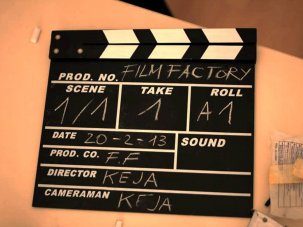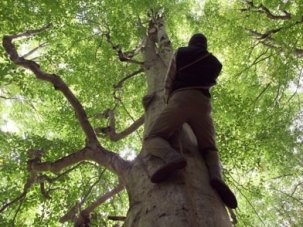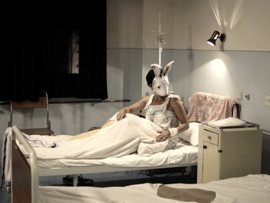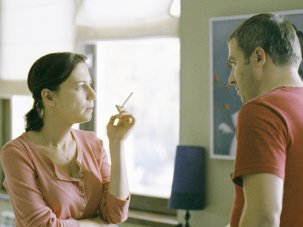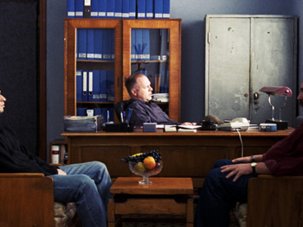Web exclusive
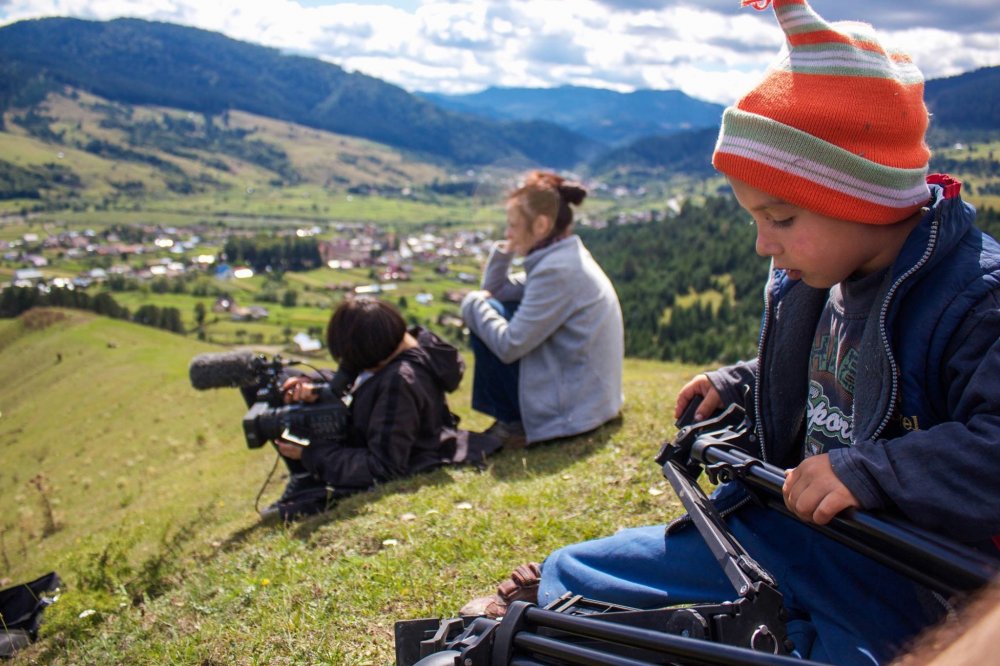
Shooting Anca Paunescu’s Vama, Texas at the Aristoteles Workshop, Romania
Eight years ago, Dan Nutu launched a unique training event for filmmakers from Central and Eastern Europe. Most of its backing came from Franco-German cultural channel Arte, so Nutu, a mercurial former Romanian movie star from the 1960s to the 80s (known, in his early years, as “the Romanian James Dean”), was originally going to call it the Arte Workshop. The channel wasn’t keen, so he moved a short way up the alphabet and settled on Aristotle because, he says, as tutor to Alexander the Great, the philosopher “trained future leaders”.
The Aristoteles Workshop was held this year from 22 August-21 September 21 in Vama, a village tucked away in Bucovina province in the far north-eastern corner of Romania, a stone’s throw from the border with Ukraine.
What makes the event so unique is that, instead of having to listen to the usual bunch of Euroexperts who spend their summers imparting dubious wisdom to aspiring filmmakers, the participants in the Aristoteles Workshop – limited to 12 per year – are very much thrown in at the deep end. Divided into four teams of three – a director, a cinematographer and an editor – they have to find a subject, research it, shoot it, edit it, grade, mix and subtitle it and have a film of between 20 and 40 minutes ready to show on the final day.
The resulting four films which I and my fellow jurors (Véronique Rabuteau, a commissioning editor from Arte, Emmanuel Chicon, a programmer from the Visions du Réel documentary film festival in Nyon, Switzerland, and Romanian director Cristi Puiu) were shown would have been remarkable under any circumstances. Given the constraints under which they were made, they were extraordinary.
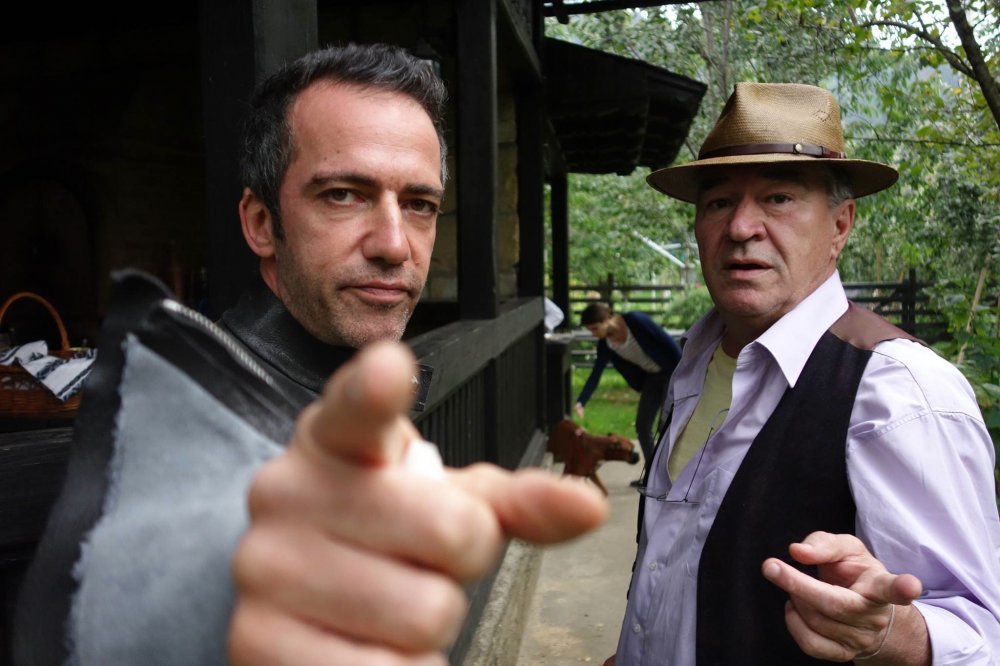
Director Rafi Pitts (left) with Dan Nutu, founder of the Aristoteles Workshop
Credit: Colbert Nodoor
The basic rule is: one week looking for a subject (not more than 60 km from Vama), one week shooting and two editing. The deep end indeed: Iranian director Rafi Pitts, a regular tutor at the workshop, insists that the element of risk is essential. “I call it sky-diving for filmmakers,” he says. “The freedom to take risks is rare in the film industry.”
Current television documentary practice, he adds, with its insistence on outlines and completed scripts, drains the life from filmmaking. “It’s very difficult to do any form of documentary that is not preconceived.”
Pitts – who shared mentoring responsibilities with Russian filmmaker Tania Rakhmanova while I was in Vama – pushes his students to “be able to write with a camera”, unconstrained by scripts or outlines. “For me, it’s all about process.”
Maybe, but the product is pretty impressive. Nicou (directed by Cristi Iftime from Romania) uses a series of long takes, sometimes static, sometimes tracking their subject around Vama, to build a portrait of the eponymous town fixer, whose role as trainer of the local football team seems only to be the tip of his involvement in local life. The film was presented as a rough cut, and there’s still work to be done before the approach gets fully to grips with Nicou’s far-from-straightforward character. But its risk-taking, rigorously disciplined observation is potentially very powerful.
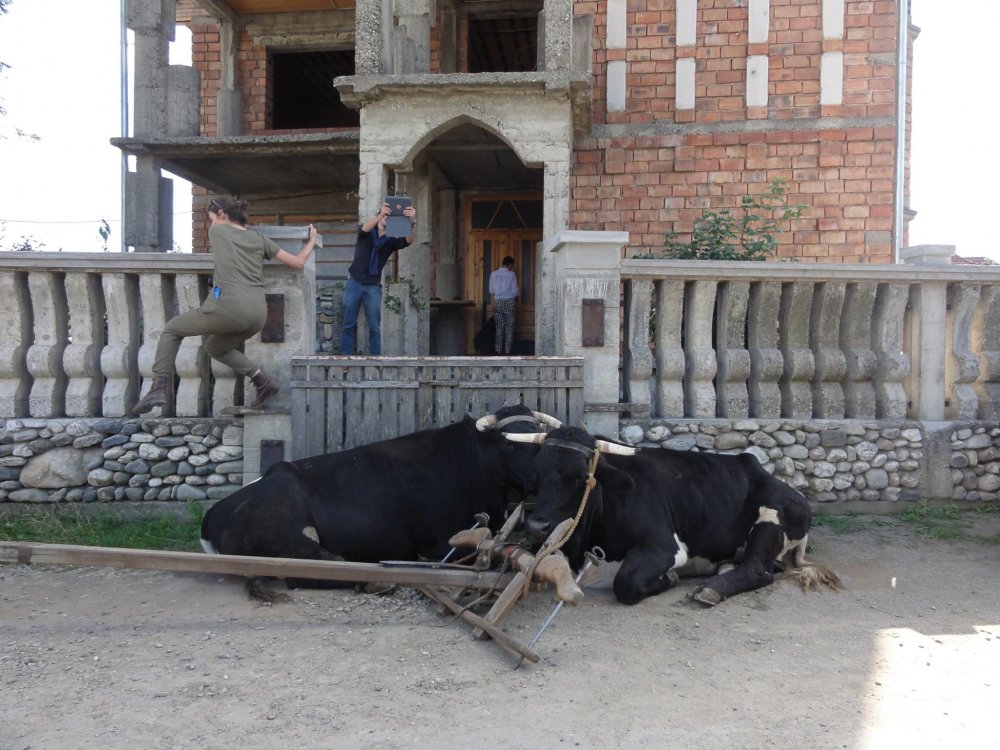
Filming Grzegorz Brzozowski’s Brick in the Wall
Credit: Colbert Nodoor
We didn’t give Nicou the prize, though: that went to Brick in the Wall, from young Polish director Grzegorz (‘Greg’) Brzozowski.
With the added constraint of not speaking Romanian, Brzozowski took as his subject a huge, unfinished house in the centre of town, right opposite the church. In the one habitable room lives an elderly couple. The husband has been building the house for 30 years, usually single-handedly, sometimes with the help of his grown-up son.
Brzozowski focuses on the couple and their fractious relationship, slowly establishing a parallel between unfinished home – not unusual in Romania, where partly built houses litter the countryside – and unfinished relationship. Where he really strikes gold, however, is when the wife confides that her husband believes that if, he ever finishes the house, he will die soon afterwards. Beautifully shot, tightly edited, Brick in the Wall zeroes in on the heart of a touching story of an endless quest, but knows just when to stop in teasing out the deeper themes.

Setting up a shoot on Olesya Bortnyak’s Mohamed Tomescu
The other two films are more than proficient but less remarkable, both focusing on an intriguing central character but both ultimately failing to get to the person behind the public persona. The title of Mohamed Tomescu (Olesya Bortnyak, Ukraine) pretty much says it all: he’s a Romanian with a Syrian father who feels his first name no longer defines him. Anca Paunescu’s Vama, Texas (Romania) meanwhile is about a motormouth Texan woman called Linda who has settled in Vama with her taciturn third husband, for whom the place is home.
Both erect barriers – Mohamed, a rapper, positions himself as a hoodie-wearing cool dude; Linda projects a breezy openness that allows glimpses of something darker – that it would have taken any filmmaker more than a week to get behind.
As it is, both films could function as pilots for something fuller and more probing. And both, along with Nicou and Brick in the Wall, are powerful testaments to the value of the Aristoteles Workshop and its ‘sky-diving’ approach. Being there at landfall to judge the dive was a privilege.




